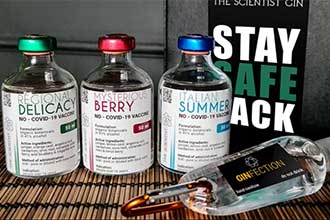Sebastian recalls that one of his highlights at WEHI was working with Professor Don Metcalf, regarded as the ‘father of modern haematology’. “His vast experience and especially his love and dedication to science, still coming to the lab every day to perform his experiments, his willingness to talk to us about science all the time, this I will always remember.”
Another was the ‘bed to bench’ initiative that Professor Doug Hilton had organised, where WEHI scientists would tag alongside oncologists at the Royal Melbourne Hospital for a week. “Seeing the human aspect of cancer when we went on the rounds was transformative. This one week changed the focus of my research and I decided that I would move from basic science to translational science,” he says.
After departing WEHI eight years ago, Sebastian moved back to Vienna to lead a research team at Boehringer Ingelheim. In 2017, he started research on a novel cancer immunotherapy target, which entered Phase I clinical trials last year.
“A moment I will never forget is a meeting with the oncologists running our Phase I trial and seeing the first positive response data, the shrinkage of a treated tumour in a patient. There is still a long way to go for possible approval, but knowing our work at least made some difference to one cancer patient drives me to work harder on better therapies,” says Sebastian.
This year Sebastian was promoted to the role of Senior Scientific Director in the Cancer Research Department, tasked with researching emerging areas that could become the next wave of cancer immunotherapies. His main focus is to investigate the interaction between cancer cells and immune cells – specifically the effect that targeted therapies have not only on cancer cells but the tumour microenvironment; and identifying novel targets that induce immunogenic cell death in cancer cells.
Somehow Sebastian also finds time for another passion: gin. After four years and more than 200 experiments, he created two pretty special varieties and founded The Scientist Gin in May last year.



